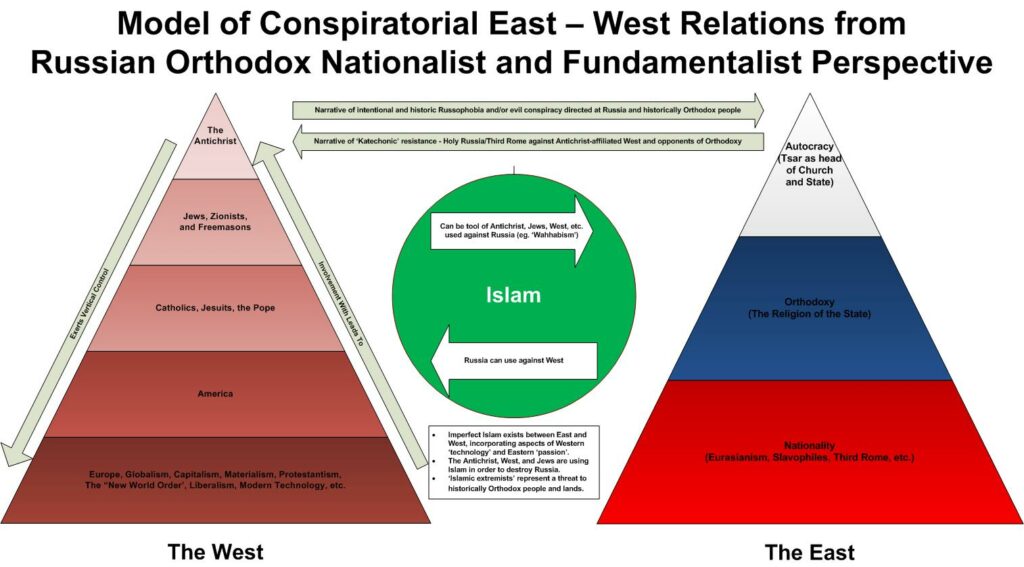Attached is my most recent peer reviewed paper which was accepted for publication in the proceedings of the 15th International Conference on Cyber Warfare and Security (ICCWS) to be held on 12-13 March 2020 at Old Dominion University in Norfolk, Virginia. The paper is based on an analysis of the online conspiracy theories which surrounded the 15 April 2019 fire at the Notre Dame Cathedral in Paris, France. (While the paper was published I am not attending the conference for personal reasons.)
Included in the milieu of conspiracy theories circulated online were fake Nostradamus prophecies evoking a kind of conspiracism known as ‘popular eschatology’. The sharing of such conspiracies drove a large global increase in Nostradamus interest, as revealed by Google Trends.
The overall mix of the Notre Dame fire conspiracy theories – to include notions of false flags, Islamophobic sentiments, and Nostradamus prophecies – seem to be similar to 9/11 conspiracies, and may share commonality in their links to Russian influence.

In a related sense, conspiratorial Nostradamus prophecies attributable to Russian proxies are associated with the visit of Pope Francis to North Macedonia in early May 2019, causing a massive spike in Nostradamus interest there (leading it to be the second highest region in the world for Nostradamus interest, and having no apparent relation to the Notre Dame fire except in terms of influence on Catholic and Western Christian culture). Such conspiracies about Popes involving Nostradamus as reflected in Google Trends have been similarly observed during times of Papal transitions such as in 2005 and 2013, and seem similar to other instances where Nostradamus interest spiked in association with probable Russian ‘active measures’.
The new paper argues that Nostradamus prophecies can be seen as similar in how they promote Islamophobia and anti-Catholicism as to how the Russian secret police concoction ‘The Protocols of Zion’ may have been useful in promoting anti-Semitism in furtherance of fin de siè·cle Russian influence campaigns. It dives deep into a cultural examination of Russia’s apparent sense of hostility to Catholicism based on its historical legacy as a Russian Orthodox country, and it attempts to frame the described 2019 ‘anti-Catholic conspiracies’ within a framework of Russian disinformation sympathetic to such nationalistic ideas.
Since the time I wrote this paper, the most notable development in Nostradamus propaganda is the broader acceptance that Russia uses figures like Nostradamus or Baba Vanga in spreading coronavirus conspiracies. I’m very happy to see that disinformation researchers are beginning to accept the idea of Nostradamus (and similar ‘prophets’) as a kind of information warfare and are educating the public about it.
Here is the new paper: Notre Dame Fire Conspiracism as Reflective of Russian Ideological Competition with the West (2020)
If you are interested in my prior peer reviewed works on Nostradamus, please see:
- Russian Active Measures and September 11, 2001: Nostradamus Themed Disinformation (2017) – International Journal of Cyber Warfare and Terrorism (IJCWT)
- Nostradamus Prophecy as a Russian Information Warfare Concept (2017) – Proceedings of the European Conference on Cyber Warfare and Security (ECCWS)
- Nostradamus Ratios: Why is Russia an Outlier? (2018) – Proceedings of the International Conference on Cyber Warfare and Security (ICCWS)
- Russian Information Warfare and 9/11 Conspiracism: When Fake News Meets False Prophecy? (2019) – Developments in Information Security and Cybernetic Wars (chapter in edited book)
